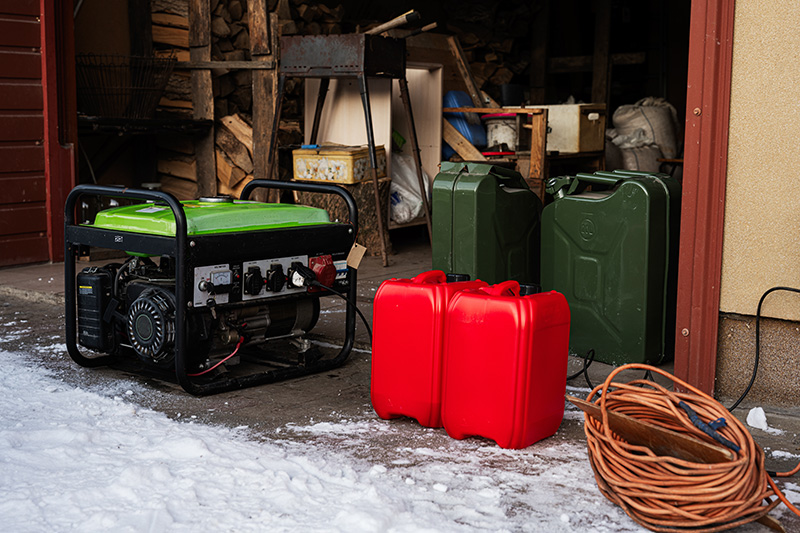Generators are one of the most valuable resources if the power goes out. However, it’s reasonable to wonder if one will work in snow, ice, or severe weather. The good news is that it’s possible with some sensible precautions.
Understanding Generators
There are two kinds of power generators: portable and standby. Portable generators allow you to take your power supply on the go, making them perfect for camping trips and outdoor activities. On the other hand, standby generators are designed to power your home during an electrical outage.
Critical differences exist in how generators operate in winter weather. Standby generators have been designed to work automatically in cold weather, while portable generators don’t work automatically and require more protection from the elements.
Both kinds of generators require maintenance to continue working correctly. Portable generators require fresh oil, air plugs, filters, and regular battery changes. Running the generator for thirty minutes every month in the off-season also helps. These generators should have empty fuel tanks during storage.
Standby generators require regular oil, spark plug, and air filter changes. Testing your transfer switch ensures the generator will work when you need it. Battery testing ensures
maximum functionality.
Will Generators Work in Snow?
Freezing temperatures and snow accumulation can affect generators’ function. If possible, your generator should have a cover to protect it from direct snowfall. Keeping snow cleared from the air intake allows uninterrupted airflow.
Clear away excess ice and keep about three feet around the generator snow-free. While the generator is running, make sure it’s not overheating.
Will Generators Work in Ice?
Ice buildup around intake and exhaust areas can cause problems, so dealing with this quickly is essential. A clean air filter will ensure better airflow. Synthetic oils rated for colder temperatures will keep everything well-lubricated. Checking fuel lines for signs of freezing is essential to preventing problems.
Will Generators Work in Severe Weather?
Storms and heavy winds can impact generator performance. Keeping the generator on a stable surface with a weatherproof cover will prevent many problems. Generators should never be directly run in wet conditions because of the shock risk. Checking your fuel levels before inclement weather ensures everything is ready.
Safety Concerns and Best Practices
Never run a portable generator indoors. Because all generators produce heat, it is essential to avoid touching hot components. Keep children, pets, and adults with mobility or sensory issues away from generators.
Generators can help life continue relatively uninterrupted during power outages, even when severe weather is the cause. Proper maintenance can make all the difference in keeping everything functional. Contact Thornton Heating today for more information on generators.

